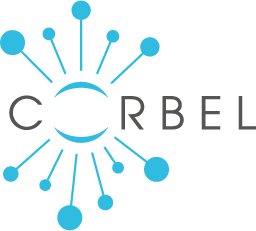General information
The Advanced Light Microscopy Facility, EMBL offers a collection of state-of-the-art light microscopy equipment and image processing tools. The facility was set up as cooperation between EMBL and industry to improve communication between users and producers of high-end microscopy technology. The ALMF supports in-house scientists and visitors in using light microscopy methods for their research and also regularly organizes in-house and international courses to teach basic and advanced light microscopy methods. The services provided include project planning, sample preparation, microscope selection and use, image processing and visualization. The ALMF supports advanced microscopy techniques such as FRAP, FRET, FCS, laser nanosurgery and super-resolution microscopy.
Expertise
The ALMF offers its expertise in the development of user defined comprehensive workflows in automated high throughput microscopy, including automated sample preparation, image acquisition, image analysis and data mining. This technology is most typically applied by users to large-scale projects, e.g. genome-scale siRNA screening. Based on its experience in high throughput microscopy and image analysis, the ALMF is able to offer approaches, which allow scanning of the sample for objects of interest by fast image acquisition and online image analysis followed by more detailed automated imaging such as multi-color 3D time-lapse microscopy, FRAP or FC(C)S.
Technologies offered for the Open Call
- Deconvolution widefield microscopy
- Laser scanning confocal Microscopy (LSCM)
- Electron microscopy and electron tomography
- Multiphoton systems
- Spinning disc confocal systems (SDCM)
- Total internal reflection fluorescence microscopy (TIRF)
- Fluorescence cross-correlation spectroscopy (FCCS)
- Fluorescence correlation spectroscopy (FCS)
- Fluorescence recovery after photobleaching (FRAP)
- Fluorescence resonance energy transfer (FRET)
- Correlative light electron microscopy (CLEM) ("live CLEM and on-section high accuracy CLEM)
- High-throughput Microscopy
- Ground state depletion microscopy (GSD)
- Reversible saturable optical fluorescence transitions (RESOLFT)
- Stimulated emission depletion microscopy (STED)
- Stochastic optical reconstruction microscopy (STORM)
- Selective plane illumination microscopy (SPIM)
Additional resources offered for the Open Call
- Technical assistance to run instruments
- Methodological setup (e.g. design of study protocol and standard operation procedures)
- Training in infrastructure use
- Probe preparation Animal preparation
- Animal facilities
- Wet lab space
- Server space
- Data processing and analysis
- Training workstations
- Training seminar rooms
- Housing facilities
- Biological material storage and processing
Access modalities
On-site, user performs experiment (supported by staff)
Scientific and technical requirements
Planned experiments must be feasible in the ALMF and enough capacity of staff and needed equipment in the planned visit period are a prerequisite.
Contacts
Scientific contact: Rainer Pepperkok
Technical contact: Stefan Terjung
 shared services for life-science
shared services for life-science
